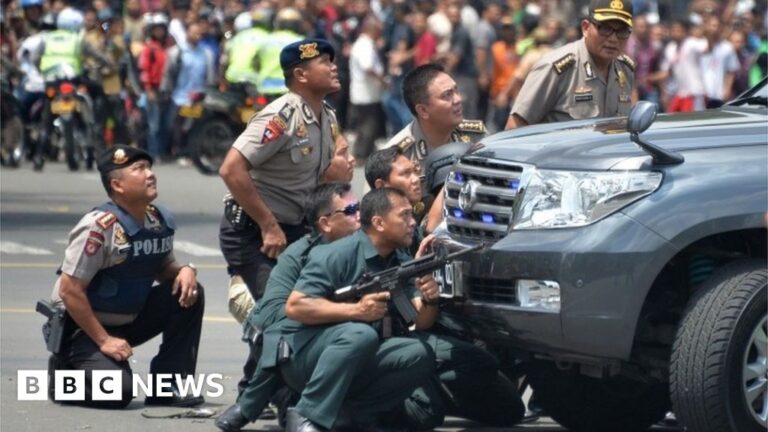After the deadly multiple bomb and gun attacks in the heart of the Indonesian capital, Jakarta, security analyst Yohanes Sulaiman considers the kinds of groups capable of such an assault, the first of its kind in Indonesia.
Despite Indonesia’s past experience of Islamist militancy and warnings of the growing influence of Islamic State in the region, few people expected an attack like this for a simple reason: the police have so far managed to prevent attacks quite effectively through their surveillance over the known radical personnel.
Since the deadly attacks of Bali in 2002 and on the Marriott and Ritz Carlton hotels in Kuningan, Jakarta, in 2009, there has been no major attack. The police have kept a close and tight watch on radical movements and especially among some of Indonesia’s susceptible youth.
The police have left little room for complacency in their ensuing crackdown. What they haven’t done is contain the seeping radicalism, which in turn supplies foot soldiers for these extremist groups.
The ambition of this gun and bomb attack was immense but early reports of how it unfolded suggest a degree of inexperience. If they wanted to exact a heavy death toll, they failed . They certainly struck at the heart of Indonesia’s capital but their attack appeared haphazard and showed little evidence of clear co-ordination.
The early evidence suggest an amateur group, rather than the generation of militants trained in Syria and Afghanistan. Compare this to the Marriott attack in 2009 which was brazen in a very different way, where we saw militants smuggle bomb parts into the hotel piece by piece until they were ready for a large and deadly detonation.
So what could this tell us?
To answer this, it is important to recall Indonesia’s complicated history of Islamist radical movements. In the 1980s a group of radical Islamists, who wanted to make Indonesia an Islamic state, went to Afghanistan to fight the Soviets and developed links with al-Qaeda.
Those groups developed considerable expertise in the deadly bomb attacks that Indonesia suffered later.
But after the Bali and Marriott bombings, much of that generation ended up in jail – they were also identified by the police, limiting their freedom of movement. In recent years, too, the police have managed to control and neutralise those foreign militants who made an appearance in training camps that cropped up in the Sulawesi region.
As a result, the current generation of radicals are either brand new people who got their indoctrination from the internet and jihadist sites, or followers of the old radical movements but with few ties with the older generation. And this new generation saw their predecessors as too timid, and decided to split into new small groups, going under the radar of the police.
The problem for the jihadists, however, is that due to heavy police surveillance, they now usually operate on a personal basis. With them abandoning the link with the older generation, either willingly or unwillingly, they were losing these personal ties with the global jihadist groups that could provide them with money and training.
Image source, Getty Images
That is also the reason why the attack in Jakarta did not cause that much damage. While the new generation may be capable of firing weapons, they do not have strong battlefield tactics that they gained through years of experience, e.g. in Afghanistan. If this is the work of the Solo [Surakarta] group, this would indicate that it has lost a lot of its weapons and expertise – that group certainly had training.
Crucially also the death of Osama Bin Laden saw a drop-off in the popularity of al-Qaeda and as IS rose, so allegiances among Indonesian militants shifted there.
Without more information on the identity of these attackers there is a lot of speculation, but in the militant movements currently active in Indonesia, we know this youth and inexperience is prevalent.
In one sense, that showed here, if indeed these attackers turn out to be part of Indonesia’s militant nexus.
So one interpretation, based on the very early evidence, is that it is the work of a new generation of radicalised militants, young and hungry to make an impact – but without the equipment and combat experience to carry out their wishes to the deadliest effect.

